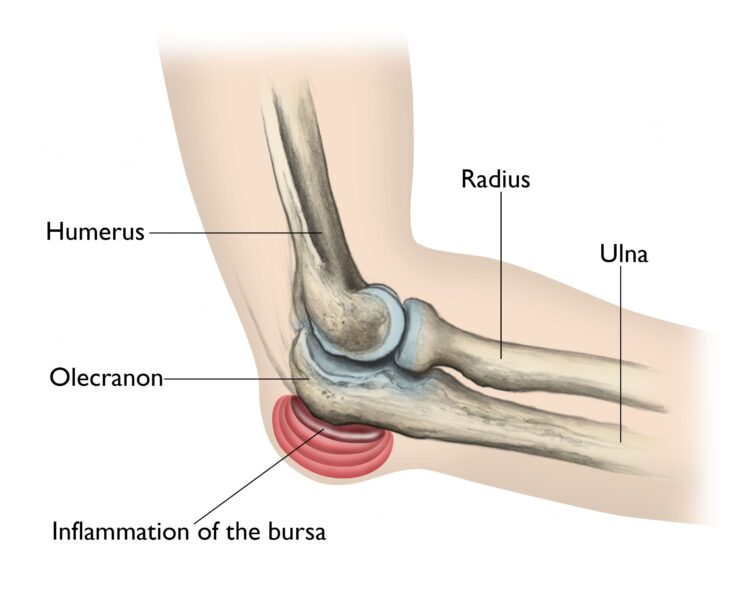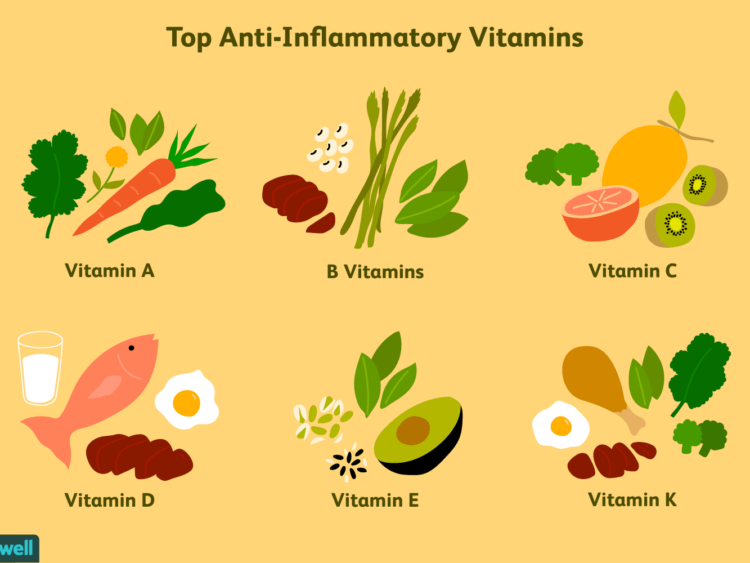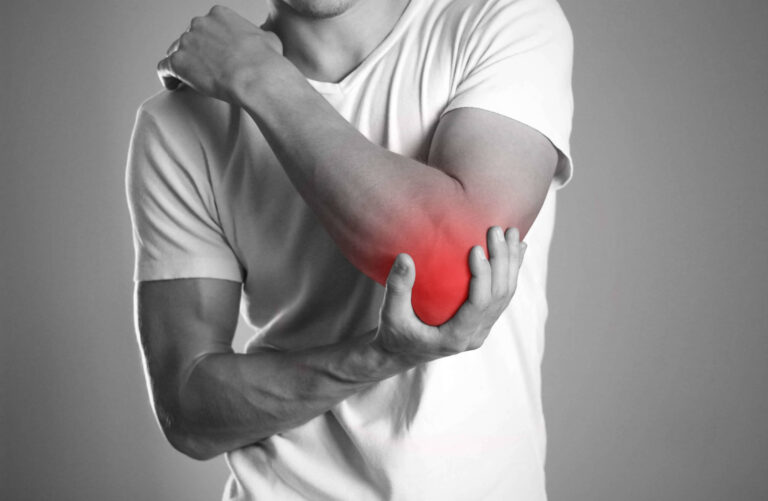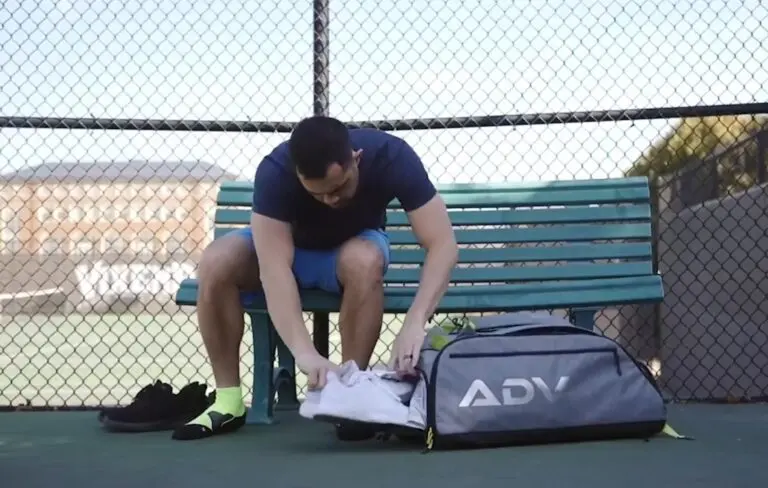Spend enough time perfecting your smash or serving up aces and you’re likely to walk off the court with tendon and joint pains. Tennis elbow owes its name to this sport for a reason! The fact is, channeling swift power through acrobatic serves and returns takes a toll on fibrous tissue in the elbows, knees, wrists and elsewhere. The inflammation that follows is your body’s way of letting you know you’ve overdone it.
For amateurs and accomplished tennis players alike, the remedy is often an ice pack and some rest. But there’s more you could be doing for your joints. Specifically, the right approach to supplementation could give you an advantage—beyond the first point scored after deuce.
Here’s a quick guide to supplementing for tennis athletes, and how the right combination of supplements could protect your tendons and joints from persistent inflammation that affects your game.
Understanding inflammation
Inflammation is the body’s response to overexertion. It’s no secret that moderate exercise is a healthy practice. But when you regularly push your body to its limits, you could be at risk for developing chronic inflammation that contributes to chronic pain.
Not only can chronic inflammation keep you off the court or out of the gym, it can also lead to the development of serious diseases like cancer, diabetes, heart disease and more. But why, exactly, does inflammation rear its ugly head when we push our limits on the tennis court? Vigorous exercise generates free radicals, which lead to inflammation.

Temporary inflammation is natural and even beneficial for the body, but chronic inflammation can damage healthy cells. Simply put: a little inflammation is okay—a lot, is not. Whether you’re an athlete or casual exerciser, you need to focus on more than sleeping and eating right when it comes to recovering after workouts.
It’s important to maintain a healthy balance of antioxidants in the body, so you have an effective defense against the harmful effects of chronic inflammation.
Vitamins and antioxidants can combat inflammation
It’s essential for everyone to keep inflammation in check, not just athletes and health nuts. This is especially true after intense workouts. A little soreness after volleying will quickly fade, but tennis elbow will creep up on you if you’re sending 150mph serves match after match. You need to address persistent inflammation.
Vitamins and nutrients can play a beneficial role in cellular health by kickstarting the healing process and moderating your body’s inflammatory response. Taking an antioxidant supplement every day can enable the body to effectively respond to free radicals. This, in turn, keeps chronic inflammation from damaging healthy cells and mitigating a whole host of health concerns, including chronic pain.
Read more here about the benefits antioxidant supplements for athletes, including how they can fight against oxidative stress and inflammation.
Inflammation-fighting supplements to know
Whether you’re an endurance athlete or you just like to stay fit with regular exercise, your body may need a little extra help fighting off the effects of inflammation. It’s often easy, safe and convenient to incorporate an anti-inflammatory supplement into your daily routine.

Here are some of the common supplements that may help reduce inflammation:
- Glucosamine. Many people use glucosamine to treat symptoms from a range of inflammatory conditions. While research is ongoing as to glucosamine’s true anti-inflammatory mechanisms, studies show that glucosamine lowers C-reactive proteins in the body, which are biomarkers of systematic inflammation. Research also shows that pairing glucosamine with the supplement chondroitin helps the body maintain healthy cartilage, which is especially important for athletes.
- Fish Oil. One of the most commonly-used supplements on the market, fish oil contains omega-3 fatty acids which are vital for optimal health. There are two primary omega-3s in fish oil: EPA and DHA. DHA is a particularly powerful anti-inflammatory. While studies are ongoing, scientists believe DHA may decrease inflammation and muscle damage that occurs after intense exercise.
- Vitamin C. Not only does vitamin C play a major role in regulating your body’s immune system, it’s also a powerful antioxidant. It seeks out and neutralizes harmful free radicals and prevents them from causing oxidative damage to cells throughout your body.
- Vitamin D. This essential fat-soluble nutrient is also known as the “sunshine vitamin” because your body absorbs most of it from exposure to sunlight. Vitamin D is believed to have powerful anti-inflammatory properties, regulating production of inflammatory cytokines that can occur in the body after exercise.
- Vitamin E. Much like vitamin C, Vitamin E is a powerful antioxidant that serves as the body’s first line of defense against harmful free radicals. By seeking out free radicals and neutralizing them, vitamin E prevents oxidative stress that can cause cell damage and premature cell death. It’s stored in fat cells in your body and released whenever free radicals are detected, helping to ease muscle soreness after vigorous workouts.
- Turmeric and Ginger. Both ginger and turmeric have anti-inflammatory properties. Studies have shown that ginger reduces inflammation in osteoarthritis patients, while turmeric has anti-inflammatory effects similar to over-the-counter medicines like ibuprofen and aspirin.
Thinking about incorporating one or more of these supplements into your daily routine? Always talk to your healthcare provider first. Your physician will take a look at your overall picture of health and determine whether supplementing right for you.
Why supplement to fight inflammation?
Many tennis players find themselves taking an Aspirin or knocking back a couple of Acetaminophen after their time on the court. While there’s nothing wrong with taking OTC medications to reduce inflammation and keep your pain manageable, long-term reliance on these drugs is never a good idea.
Supplementing is a healthy alternative that’s often just as effective, serving as a natural remedy to chronic inflammation. The right supplement regimen could help reduce your reliance on over-the-counter medicines.
Always see a physician if there’s pain

Pain isn’t something to ignore—especially chronic pain. There’s a big difference between some swelling after vigorous exercise and pain that lasts long after you’ve rested. If you’re suffering from Tennis Elbow, or you’re experiencing chronic pain for any other reason, don’t hesitate to make an appointment with your physician to discuss treatment options.
While supplementing can be an effective way to combat chronic pain, your doctor may also recommend a physical therapy regimen or even surgery to correct the condition. Remember that if you’re planning to supplement, always get a doctor’s permission first to make sure it’s a good idea for you.
The goal is to keep you on the court, playing your best. To do that takes a robust approach to maintaining your health—specifically, oxidative stress and your body’s inflammatory response.
Related:
- Top 19 Best Tennis Bags 2024 [Unbiased Reviews]
- 20 Best Tennis Shoes 2024 - Stylish and Athletic
- 18 Best Tennis Racquets 2024 - Exclusive Reviews &…
- 15 Best Tennis Racquet for Beginners & Intermediate…
- 15 Best Tennis Balls 2024 - USTA and ITF Approved
- Top 16 Best Pickleball Paddle 2024 - Step Up Your Game











